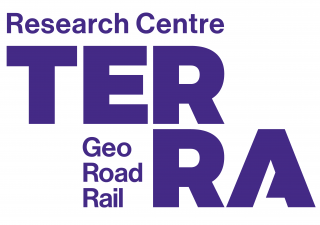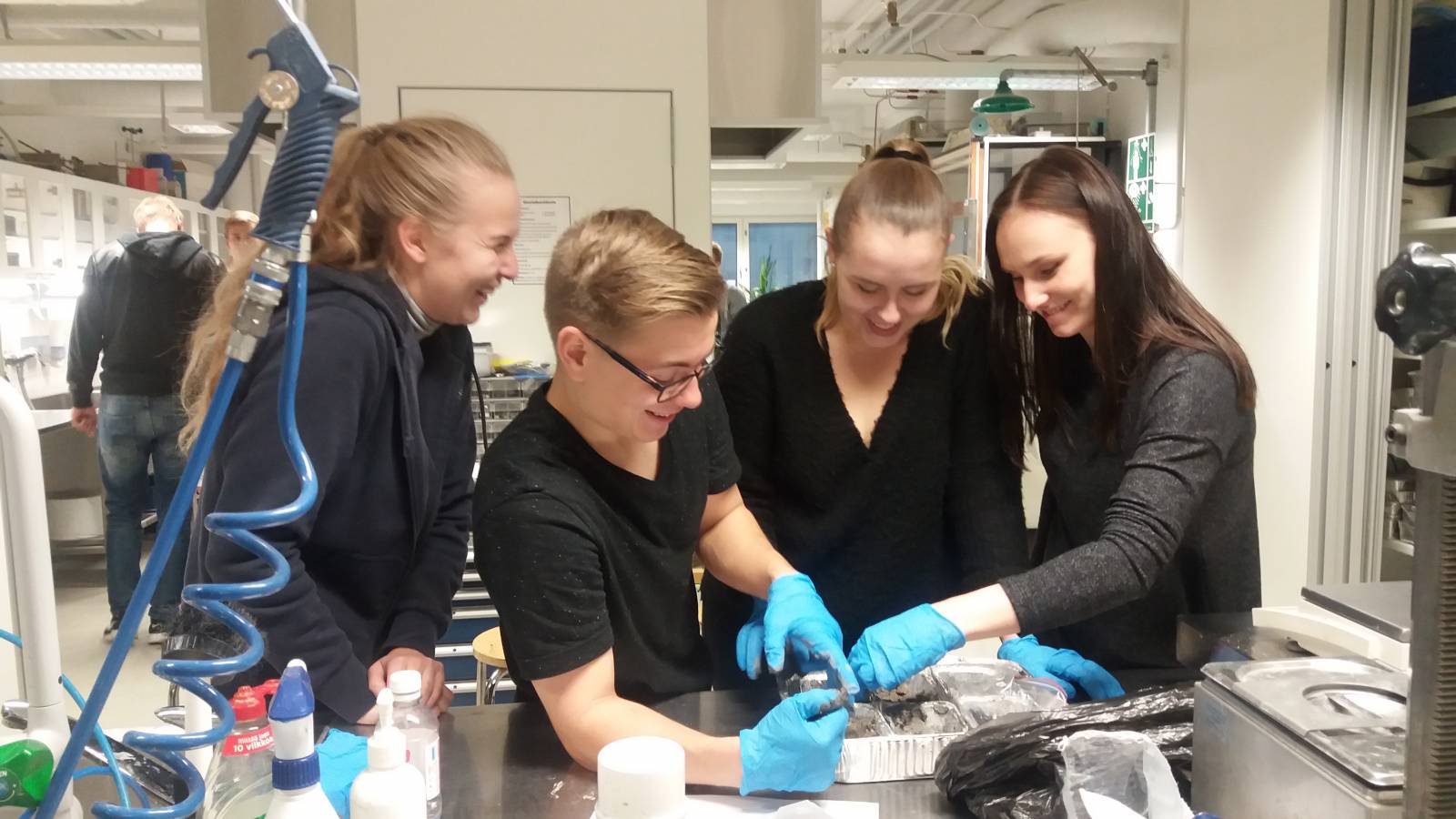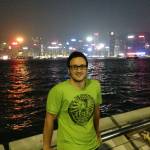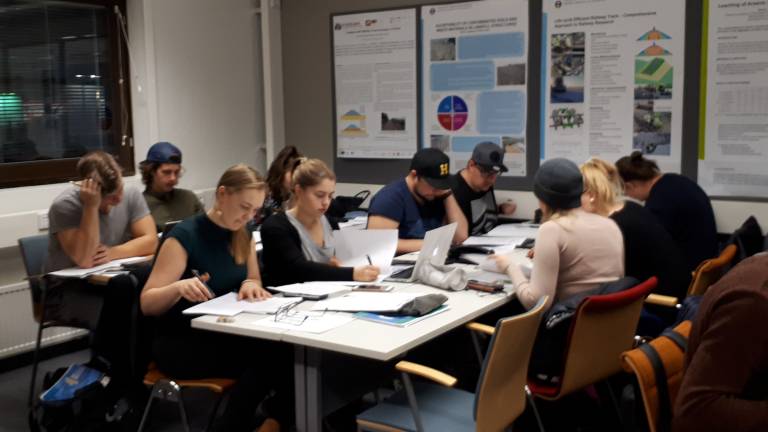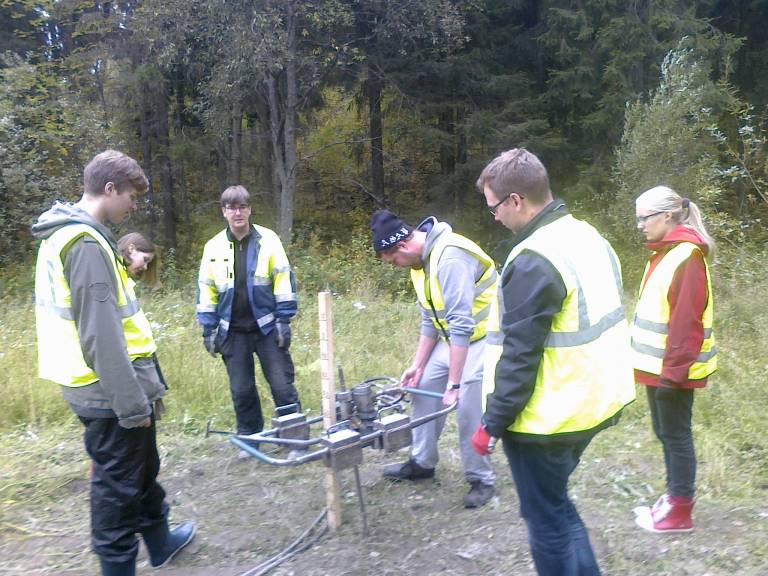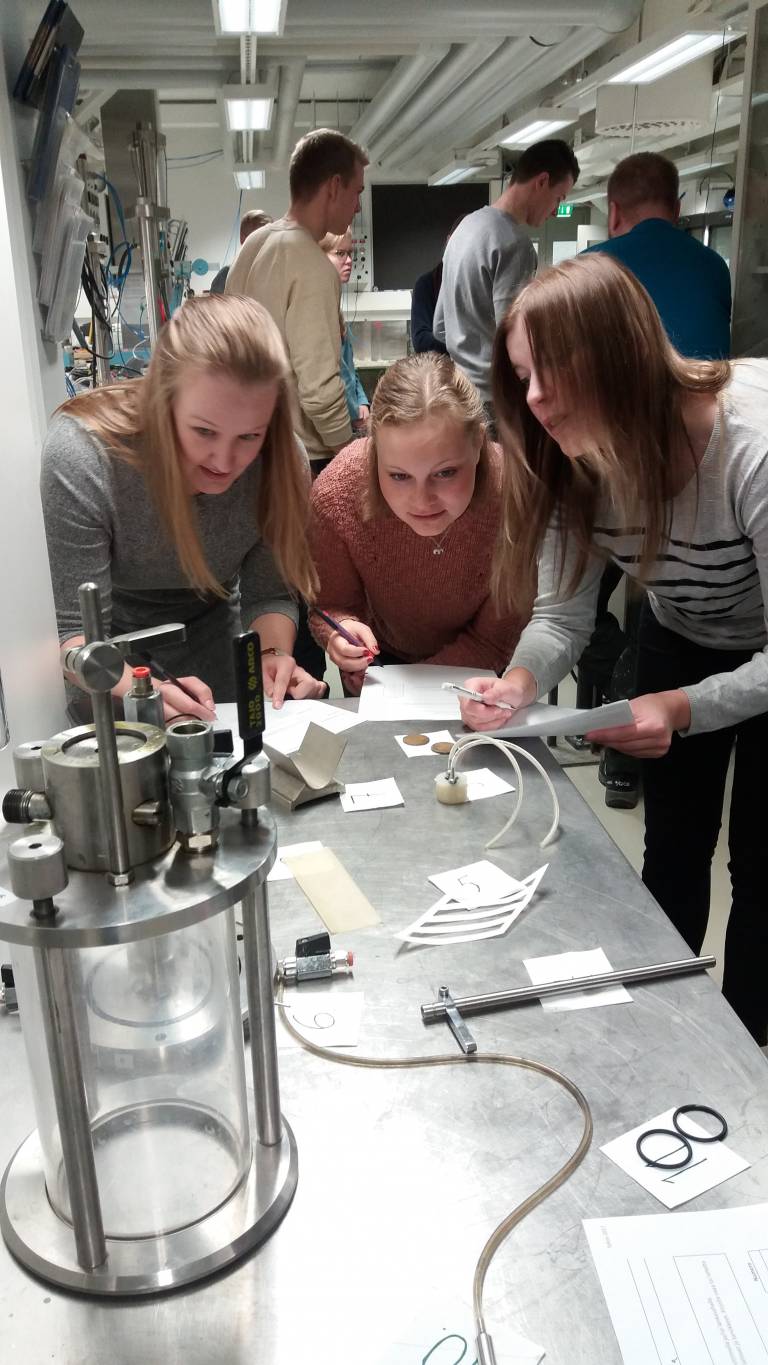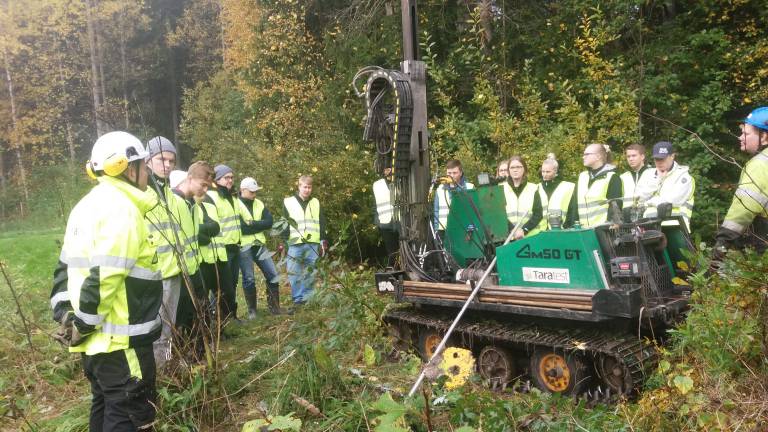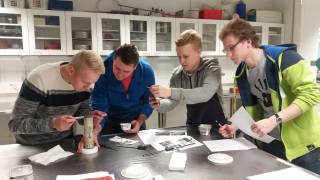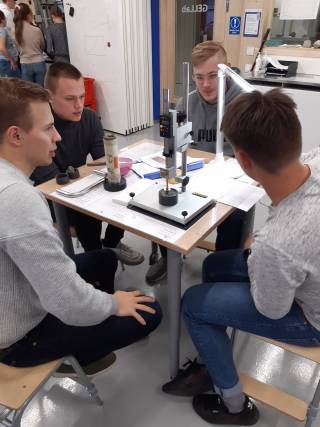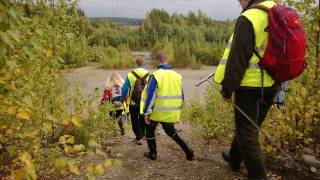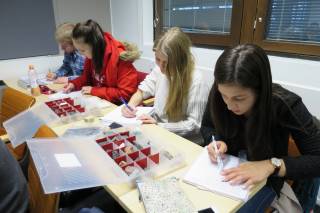The core goals in teaching about infrastructures and materials is to first point out the crucial factors in soil and bedrock that affect construction and, secondly, to teach how the materials can be used and how the infrastructures can be designed considering the circular economy and resource efficiency.
We offer comprehensive and extensive teaching in collaboration with various professionals. Our teaching principles are based on:
- • Learning by doing
- • The use of modern learning environments, our teaching laboratory and testing equipment, together with topical design software
- • The continuous development of teaching methods
Teaching is communal, involving the whole staff. Changing working life needs and life-long learning are taken into account in course offerings. To that end, we have organized continuing education courses on circular economy and dam safety.
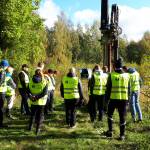
Geo Engineering Learning Laboratory (GELLab) provides modern facilities and equipment for the independent learning of geotechnical and geological laboratory testing methods. The experiential learning supports the assimilation of theory.
Working life competences are integrated into the curriculum. Design exercises are examples of real-life design projects. Working in small groups supports the development of problem-solving and teamwork skills, and develops critical thinking.
Research skills are learned through Bachelor’s theses on current issues. Master’s theses are typically part of a larger research or development project, either at the university or in a company. About 20–40 theses are published yearly. The theses can be found in Trepo, the institutional repository of the Tampere University.
In addition, a traineeship is an essential part of learning and supports studying. GeoLA, the testing laboratory of Terra, and Terra’s research groups offer a wide range of practical training possibilities both in the summer and during the academic year alongside other studies, from field measurements to laboratory work.
Most of the courses are lectured in Finnish. However, two courses on computational geotechnics are lectured in English, and most of the courses can be studied individually based on English literature, too. We have several Erasmus students every year, and international students can conduct their Master’s or doctoral thesis in collaboration with our research groups.
Career
“I currently work as a geotechnical specialist at Ramboll and part-time as a PostDoc Research Fellow at Tampere University, where I am studying complex geomaterials. Facing challenges is, in my opinion, the best way to meet expectations. The expectation is, for an engineer, to have challenges all the time.” Read the full interview
PhD Marco D’Ignazio, Ramboll Finland Oy & Tampere University

